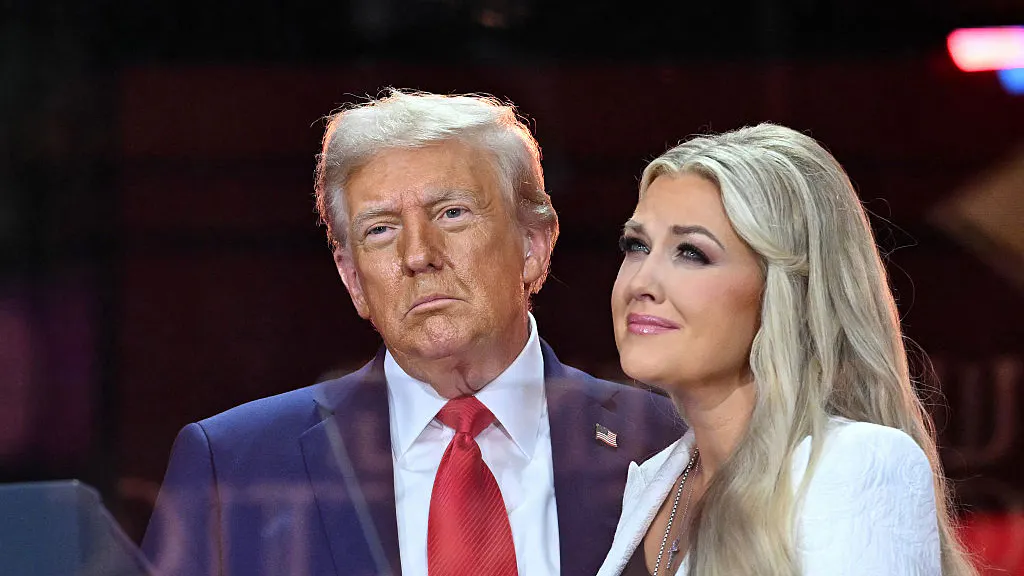At Charlie Kirk’s memorial, his widow, Erika, in front of the world, bearing the weight of a grief most of us can’t imagine, spoke the hardest three words anyone could utter in that moment: “I forgive you.”
Those words weren’t just about her husband’s killer. They were a rebuke to the spirit of the age. They were a declaration of something higher than politics, bigger than partisanship, deeper than revenge.
As C.S. Lewis wrote in “Mere Christianity,” “Everyone says forgiveness is a lovely idea, until they have something to forgive.” Erika Kirk had something to forgive — the unthinkable — and she chose to do so. That choice will echo long after the headlines fade.
Our society doesn’t celebrate forgiveness. We celebrate rage, retaliation, and resentment. We celebrate scoring points. Forgiveness takes points away.
Just look at the reaction from many on the left after Charlie’s death. Instead of pausing to reflect on the horror of a political assassination, some mocked him, dismissed him, even sneered that he “had it coming.” Now hold those words up against Erika’s: “I forgive you.” On one side, contempt for the dead. On the other, mercy for the murderer. Which one sounds like the path forward for a country in desperate need of healing?
Forgiveness is not weakness. It is a strength.
The natural instinct is vengeance. The natural instinct is bitterness. Forgiveness requires something supernatural. Forgiveness requires faith. That’s why Erika’s words are not just personal — they’re political in the truest sense. They point to how we can live together as a nation again. Without forgiveness, politics becomes a blood feud. Without forgiveness, every wrong is permanent, every scar is eternal, every offense is a weapon.
Make no mistake: forgiving Charlie’s killer doesn’t mean excusing him. He should face the fullest penalty the law allows. But what Erika modeled is something far greater than the courtroom can deliver. She showed that even in tragedy, there is a higher way.
And we should be honest with ourselves: could we have done what she did? Could we look at the person who took everything from us and speak of forgiveness? I’ll be the first to admit I would certainly struggle with it. Most of us struggle to forgive petty slights — an insult on social media, a betrayal at work, a family dispute. Erika forgave murder. That should stop us in our tracks. It should prompt us to reconsider how shallow our own grudges appear in the light of her example.
Here’s a challenge: if Erika can forgive the murderer of her husband, imagine what we can forgive. A friend who wronged us. A sibling we no longer speak to. A co-worker who let us down. A neighbor we’ve written off. Maybe even someone we got in a political argument with? Literally anything. What if her act of forgiveness became a call for each of us to pick one person in our lives and extend the same? What if every American chose just one person to forgive this week? The overnight impact on our country would be seismic. Family bonds restored. Friendships repaired. Communities healed. The culture itself shifted from one of resentment to one of reconciliation.
Forgiveness is not just a private virtue; it’s a public necessity. Families fall apart without it. Churches crumble without it. Nations collapse without it. Conservatism, at its heart, is about conserving what is good, true, and beautiful — and none of that can survive in a culture that cannot forgive.
That’s why I believe Erika’s words will be remembered as the most important of 2025. Not a line from the State of the Union, not a slogan from a campaign rally, not a soundbite on cable news. But a widow, standing in the ruins of her family’s life, saying: “I forgive you.”
History may record Charlie’s work, his speeches, his debates, and his books. But it may well be that his greatest legacy comes through his wife’s example — an act of forgiveness that shines brighter than the hatred aimed at him in life and in death.
If we truly want to honor him, that’s the challenge we must take up ourselves. To forgive those who slander us, those who oppose us, even those who despise us. Not because it is easy, but because it is necessary. Without it, we cannot heal. Without it, we cannot endure.
Three impossible words. Three unforgettable words. Three words that may just save us: “I forgive you.”
Gates Garcia is the host of the YouTube show and podcast “We The People.” Follow him on Instagram and X @GatesGarciaFL.
The views expressed in this piece are those of the author and do not necessarily represent those of The Daily Wire.

Continue reading this exclusive article and join the conversation, plus watch free videos on DW+
Already a member?

.png)
.png)

